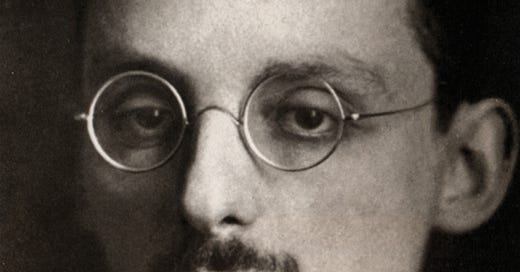Max Brod's Kafka: Saint, Sinner, Something in Between?
Wherein we dissect Max Brod's hagiographic portrayal of Kafka, contrasting it with Benjamin's critiques and Stach's nuanced approach, revealing the complexities of friendship and literary legacy.
After delving into Reiner Stach’s meticulous biographical work, Kafka: The Early Years, I think it might be helpful to revisit its venerable predecessor—Max Brod’s Franz Kafka: A Biography. Brod’s biography, once the definitive account of Kafka’s life, now stands as a curious artefact—a testament not just to Kafka but to a complex mix of friendship, memory, and literary legacy. How would this stand up against Stach’s modern, exhaustively researched, highly readable book? What new insights might emerge from this literary tête-à-tête across the decades?
Max Brod’s Franz Kafka: A Biography bears witness to the complex relationship between two literary figures, one immortalised in the annals of modernist literature, the other forever linked to his friend’s legacy. Brod, Kafka’s closest confidant and literary executor, offers readers an intimate glimpse into the author’s life. However, as with any biographical work, especially one penned by a close friend, we must approach Brod’s account wi…
Keep reading with a 7-day free trial
Subscribe to Paper Knife to keep reading this post and get 7 days of free access to the full post archives.




